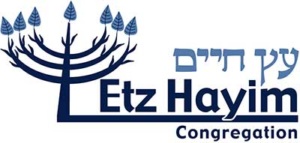Instructions for counting the omer are found on our Omer Overview Page. You can find the specific blessing for today at chabad.org.
We’re dedicating new Siddurim on the first day of Shavuot. In honor of this wonderful occasion, we’re using the counting of the Omer to learn about the siddur.
Enjoy today’s siddur related question and answer, which was provided by The Internet.
What’s the most surprising prayer in the Siddur?
Imaging opening up your siddur and finding a prayer for the wellbeing of a Roman Emperor, ‘Lord King Fernando’ (who would expel the Jews from Spain!) or even the Pope!
“”I always assumed that [the prayer for our country] was a recent addition- we said something somewhat different at the Conservative synagogue that we also attended, also in English.
In fact, the origin of the prayer for the welfare of the government is biblical. It was following the first exile, as we sat by the waters of Babylon that the Prophet Jeremiah conveyed to us the following:
“So said the L-rd of Hosts… seek the welfare of the city to which I have exiled you, and pray to Hashem on its behalf, for in its prosperity you shall prosper.”
This was after 586 BCE. Not 200 years later Ezra recorded that in the rebuilt Second Temple it was the practice to offer sacrifices and prayers for the lives of Emperor Darius I of Persia and his children. Some six hundred years after that the Pirkei Avot (Ethics of the Fathers) touches on the subject in Chapter 3, Part 2:
“Rabbi Chanina, the deputy Kohen Gadol says: ‘Pray for the welfare of the government, because if people did not fear it, a person would swallow his fellow alive.”
What makes this Talmudic reference all the more remarkable is that Chanina lived in the days of Nero- a ruler whose name has become synonymous with tyranny- and he heralded a long tradition of Jews praying for rulers for whom they didn’t particularly care.
In the Dead Sea Scrolls, archeologists found the oldest known prayer for the welfare of the government, this one by the community of Qumran praying in 130~ BCE for the Hasmonean King Yonatan, the nephew of Judah Maccabee.
While working his way through the Cairo Geniza in 1898, Rabbi Solomon Schecter found the following prayer:
“In Your Name oh Merciful, And we pray for the life of our lord, the great king, the prince of the sons of Kedar, our master and lord, the Imam, the Commander of the Faithful, and for his sons, the royal family, and all persons of his entourage who serve the king out of love and wage war for him against his enemies. May G-d- may he be praised- help them and help us; may he subdue their foes and ours; and may he fill their hearts kindness towards us and towards all his people, the house of Israel, and let us say; Amen.”
Dating from the early 11th century, this prayer would have been used to bless the Fatimid Caliph and ruler of Egypt, Abū ʿAlī Manṣūr- the 16th Imam of the Ismaili branch of Shia Islam, and a major figure in that religion. Another surviving prayer from Worms, Germany from the same time period blesses the Holy Roman Emperor Conrad II.””
Read more: https://www.ou.org/life/news/blessing-czar-pray-president/
Learn More
You can learn more at:
https://www.beureihatefila.com/files/2012-11-09_Tefila_Newsletter_Supplement.pdf


